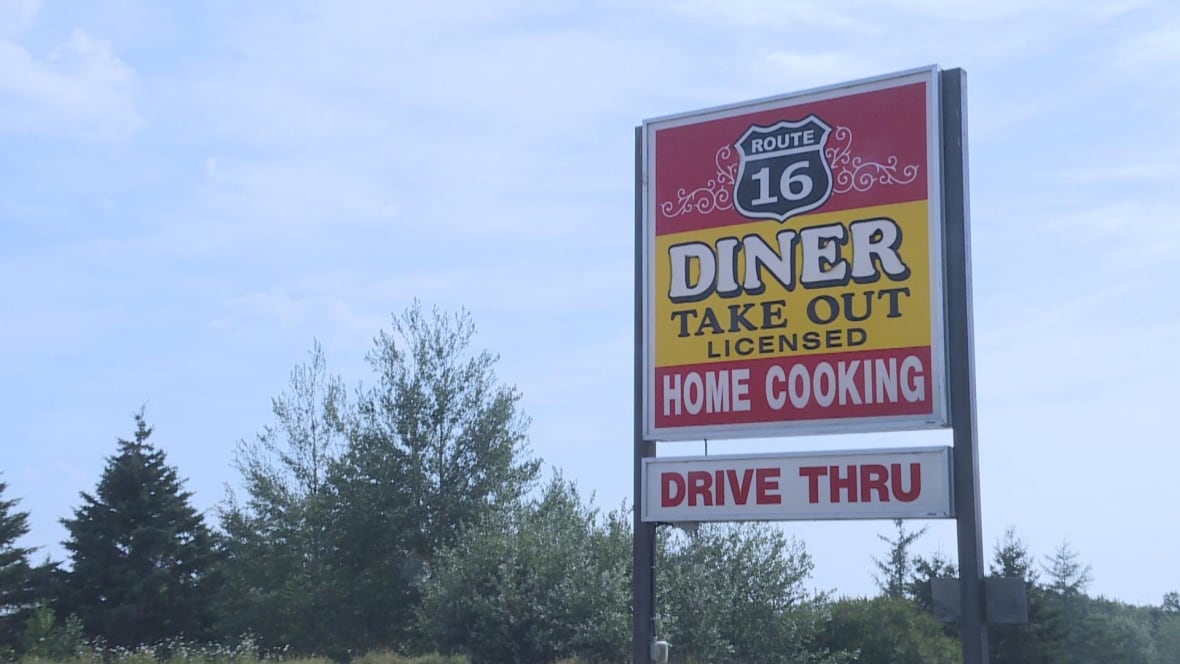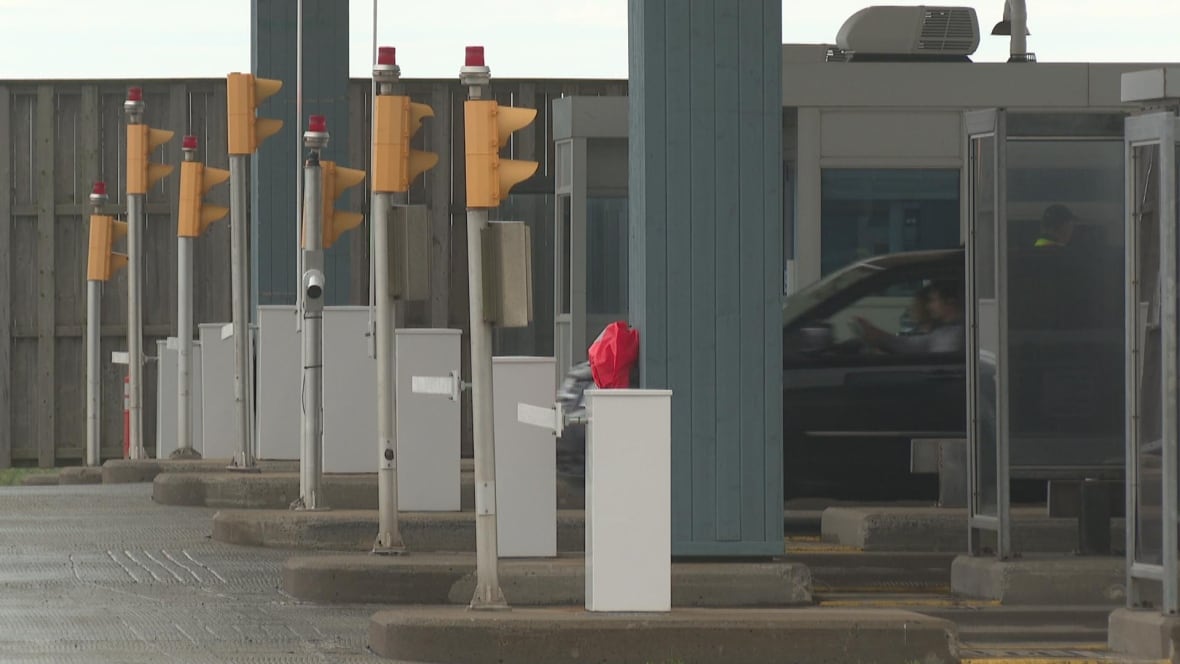N.B. businesses near Confederation Bridge hope toll reduction means increase in visitors
The price to cross Canada’s longest bridge has dropped by more than half

Route 16 Diner is one of a handful of businesses dotted along the rural New Brunswick highway that leads up to the Confederation Bridge.
Co-owners Tony Polley and Valerie Doucett have been running the place for 12 years and have a steady stream of regular customers.
"I think we get a good share. Because we've been here so long, people depend on us being here. We're only closed a few days a year," said Polley.
He said about 50 per cent of his customers are on their way to or from Prince Edward Island. So, with the recent reduction in the price to cross the Confederation Bridge — from $50.25 to $20 per vehicle — Polley hopes even more customers will stop by the diner.
"People from Prince Edward Island, now they can come across the bridge, go to Moncton … that cuts their trip by $30," he said.

"So I think you'll see a lot more traffic, especially in the winter when little places like this need it."
The diner's attached convenience store is also one of the only places for several dozen kilometres to buy fresh produce and meat, which the couple travels to buy in either Moncton or Amherst, N.S.
Now, Polley said they might be able to do some of that shopping in Summerside, P.E.I.
And if business at Route 16 Diner does increase, the store could adjust to be open for longer hours, and employ more people in the community.
'A lot of people pass us by'
Cape Jourimain is the last point in New Brunswick before the bridge to P.E.I., and the not-for-profit nature centre there is also hoping the toll reduction means more visitors.
"Hopefully it'll spur more Atlantic province visitations from Quebec, Ontario and maybe even as far as out west," said Gary Gaskin, a member of the Cape Jourimain Nature Centre board of directors and long-time volunteer.
"I really hope so, because of course, in this turbulent time, Canadians have got to stick together."

Gaskin said staff are starting to keep track of how many of their visitors are coming from the Island, but he knows at least some portion of them are.
"We have had a number of cruise ships that go into Charlottetown and they've made arrangements with their administration to come from Charlottetown on an excursion to our site," he said.
"We have them go through the centre, our museum, our viewing platform and come out to the lighthouse."
The lighthouse at Cape Jourimain, which has a picturesque view of the bridge itself, was once a guiding light for the ferry that used to run before the bridge opened in 1997.
But those days are long gone.
"I imagine a lot of the people pass us by. It's surprising the number of people that happen to stop in and say, 'Gee, I've passed this way a number of times and I didn't even know you were here,'" said Gaskin.
"And that's very sad because it's a beautiful area."
A closer economic connection
Businesses near the bridge won't be the only ones impacted by the toll reduction. It also means a benefit for businesses that transport across the bridge on a regular basis.
"It was considered a trade barrier," says Frédéric Gionet, a senior policy analyst with the Canadian Federation of Independent Business (CFIB) Atlantic Region.

Gionet said some businesses have been asking for price reductions on the bridge for many years, and the CFIB launched its own campaign for a toll reduction over a year ago.
"This started in P.E.I. and it was the talk of the town and the main thing that could be done to help their business grow," he said. "It was universal. The bridge would always come up."
The CFIB calculated the cost to the P.E.I. potato industry alone to be $7 million, but Gionet said even small businesses pass the price of things like tolls along to their customers.
"In these competitive markets, you know, every little amount matters," he said.
While Gionet said 76 per cent of businesses the CFIB surveyed wanted tolls to be removed altogether, it's hard to complain about a reduction of more than half.
"Obviously, our members have voiced the preference for removing the tolls altogether, but nevertheless, this is a big improvement for transportation in Atlantic Canada for many businesses, but also for residents as well," he said.

The old per-axle price for commercial vehicles meant that some trucks were paying nearly $80 to cross the bridge.
Now, Gionet said a "tax on P.E.I." has been removed, at a time when inter-provincial trade is more important than ever.
"Really, we're all interconnected, and removing this barrier, it's going to give small businesses a fighting chance faced with these uncertain economic times."


